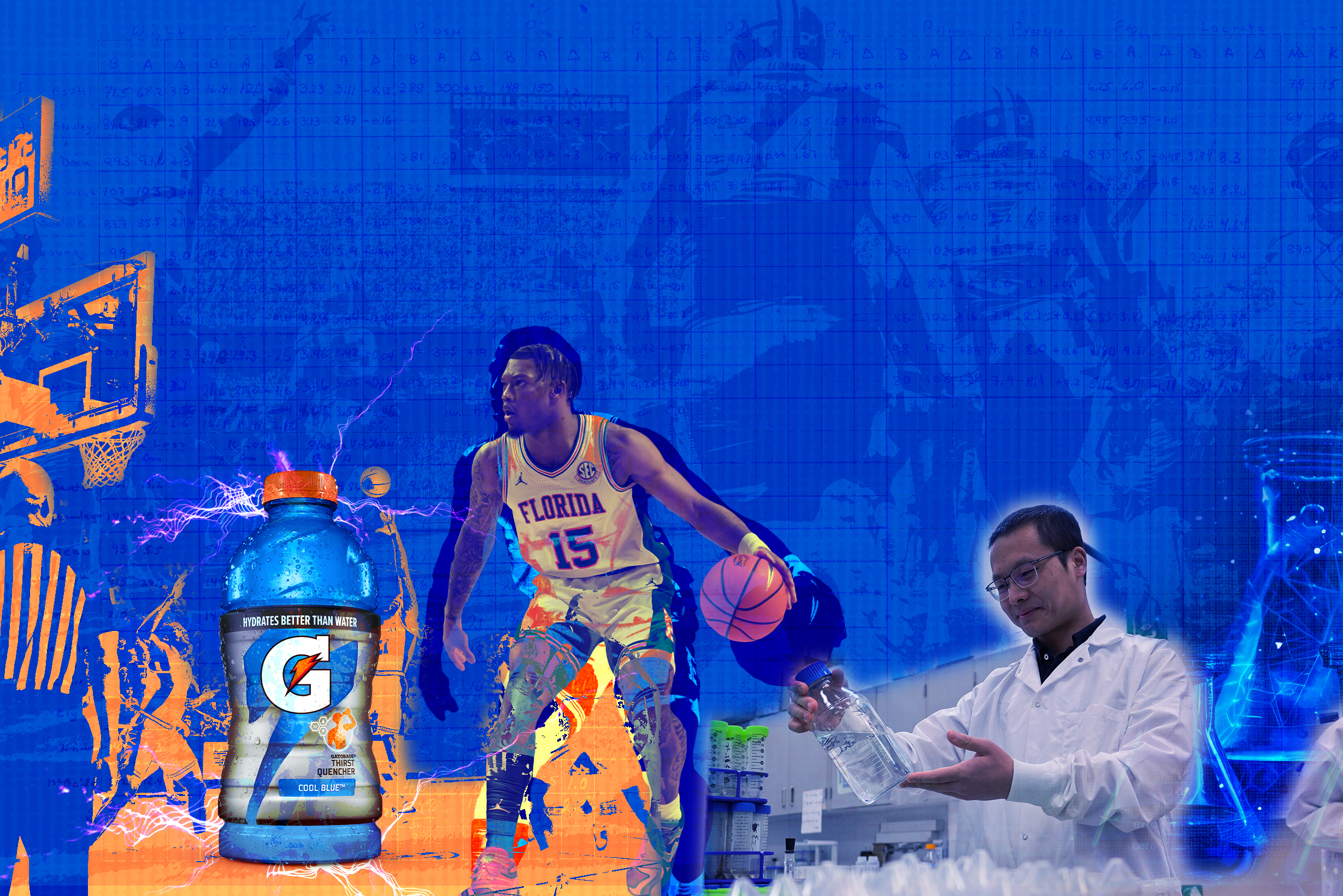UF has received more than $500 million in Gatorade royalties, helping to fund thousands of research projects. Often, faculty are able to leverage Gatorade seed funding into millions more in grants from public and private agencies.
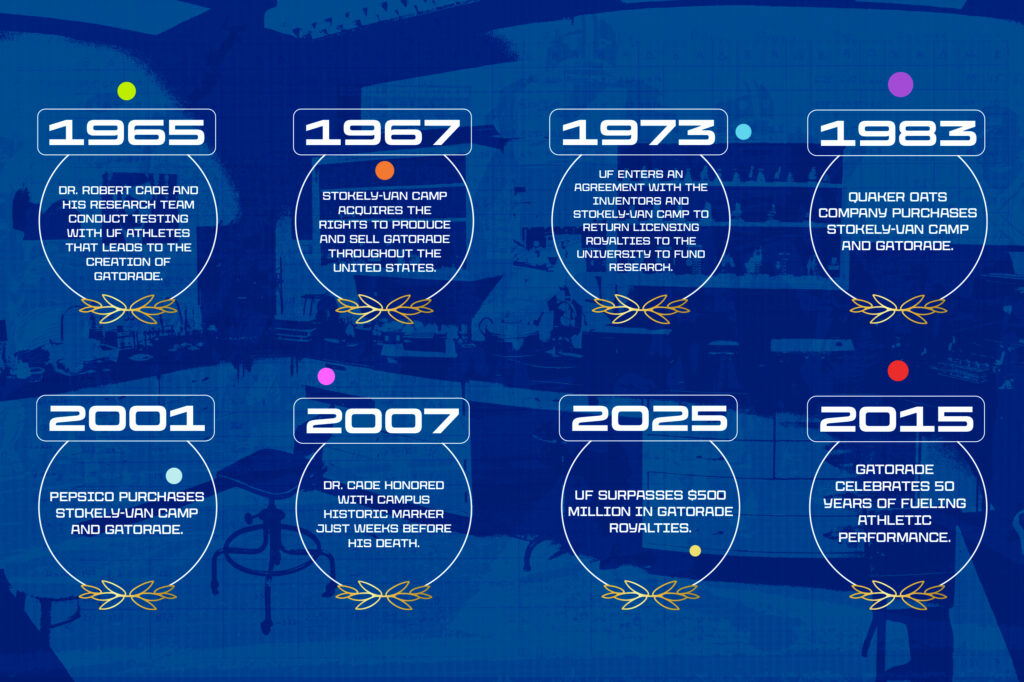
The Next Generation

Keri Hoadley
UF astronomer Keri Hoadley, who specializes in ultraviolet space instrumentation, is building tools for future space missions, including NASA’s Habitable Worlds Observatory. The UV Space Lab she leads is outfitted with state-of-the-art tools to design and construct space-bound instruments, positioning UF as a national leader in space technology development. It also integrates with the university’s Astraeus Space Institute, creating a powerful interdisciplinary hubfor space exploration.
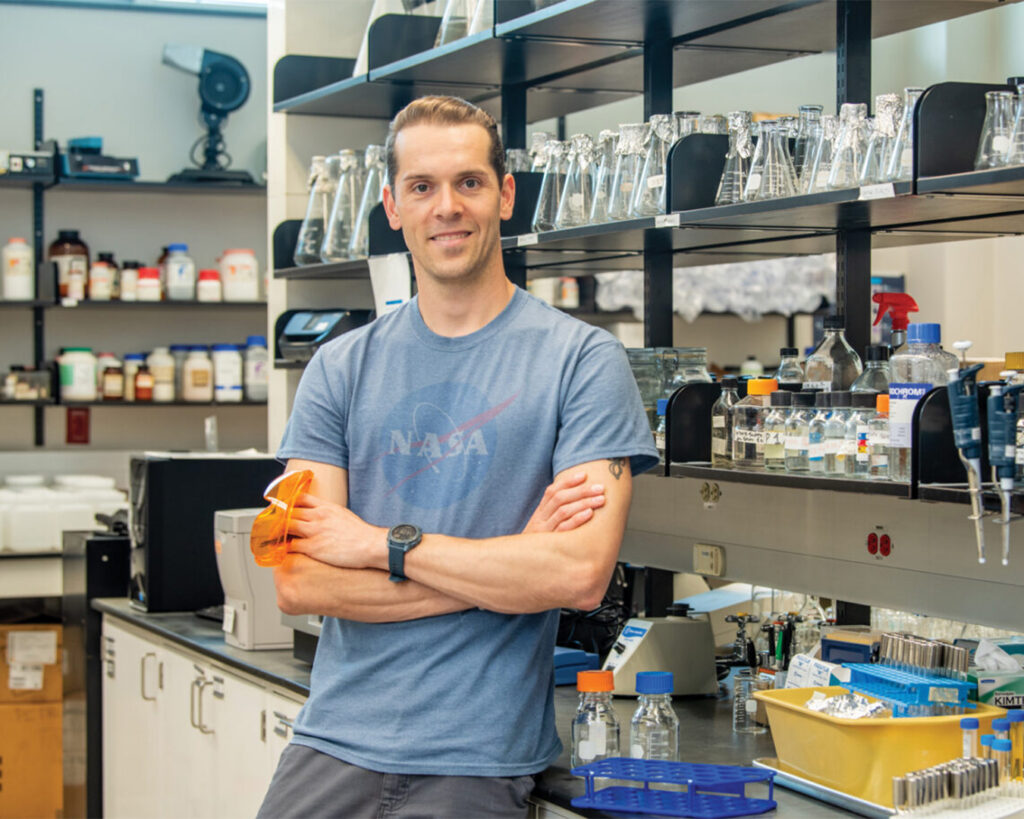
Nils Averesch
Synthetic biologist Nils Averesch is developing microbial systems to support long-term space missions. Formerly at NASA’s Ames Research Center, Averesch now works at UF’s Space Life Science Lab, engineering microbes to produce food, fuel and medicine from limited resources. His vision treats biology as a toolkit for exploration, creating “living factories” that function in space. Averesch’s work not only advances space sustainability but also offers solutions for Earth’s environmental challenges.
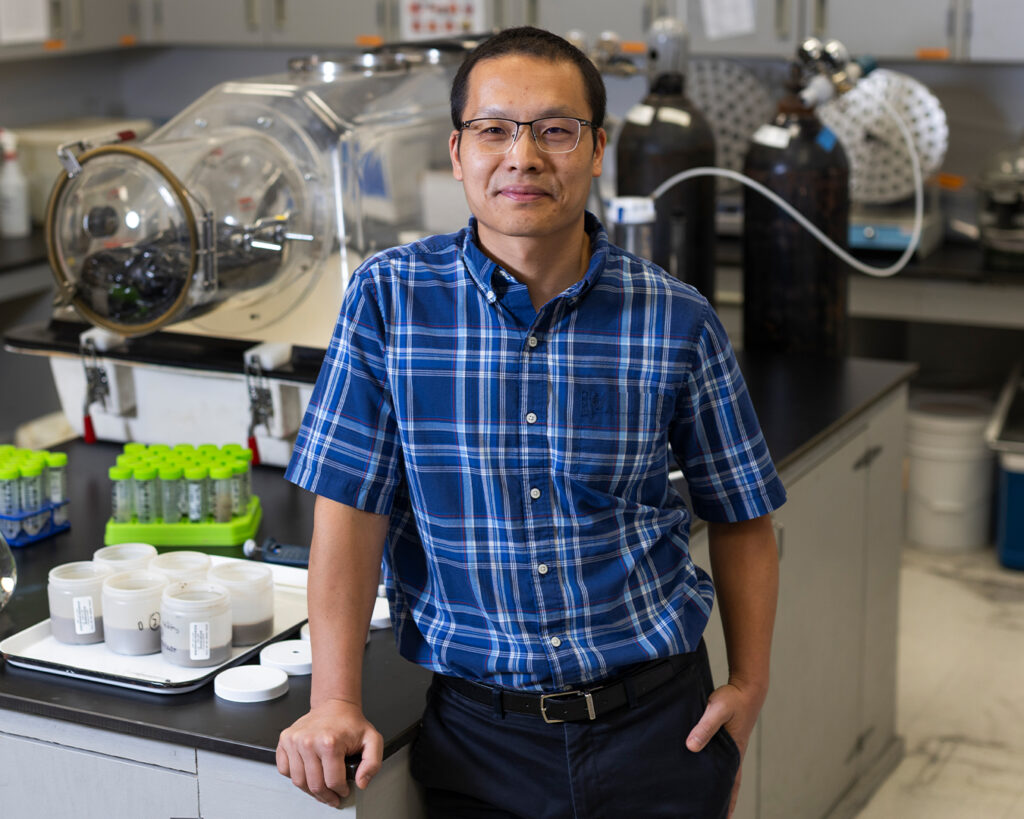
Dengjun Wang
Dengjun Wang, a UF professor in agricultural and biological engineering, is tackling PFAS contamination — harmful “forever chemicals” affecting soil and water. His research combines hydrological modeling with machine learning to track PFAS movement and guide cleanup efforts. Focused on protecting rural communities and agriculture, Wang’s systems-level approach examines how PFAS interact with farming practices. His work aims to develop decision tools for land managers and policymakers to reduce exposure while maintaining productivity.

Jason Butler
Jason Butler, a professor of hematology and oncology, leads a UF Health Cancer Center team that discovered how blocking a protein called thrombospondin-1 can reverse aging in blood stem cells. Their research showed that removing this protein in aged mice restored youthful blood function, improved bone and vascular health, and extended lifespan. The study opens doors to therapies that could enhance immune response and chemotherapy outcomes in older adults. With clinical trials ahead, Butler’s work represents a major step in combating age-related decline.
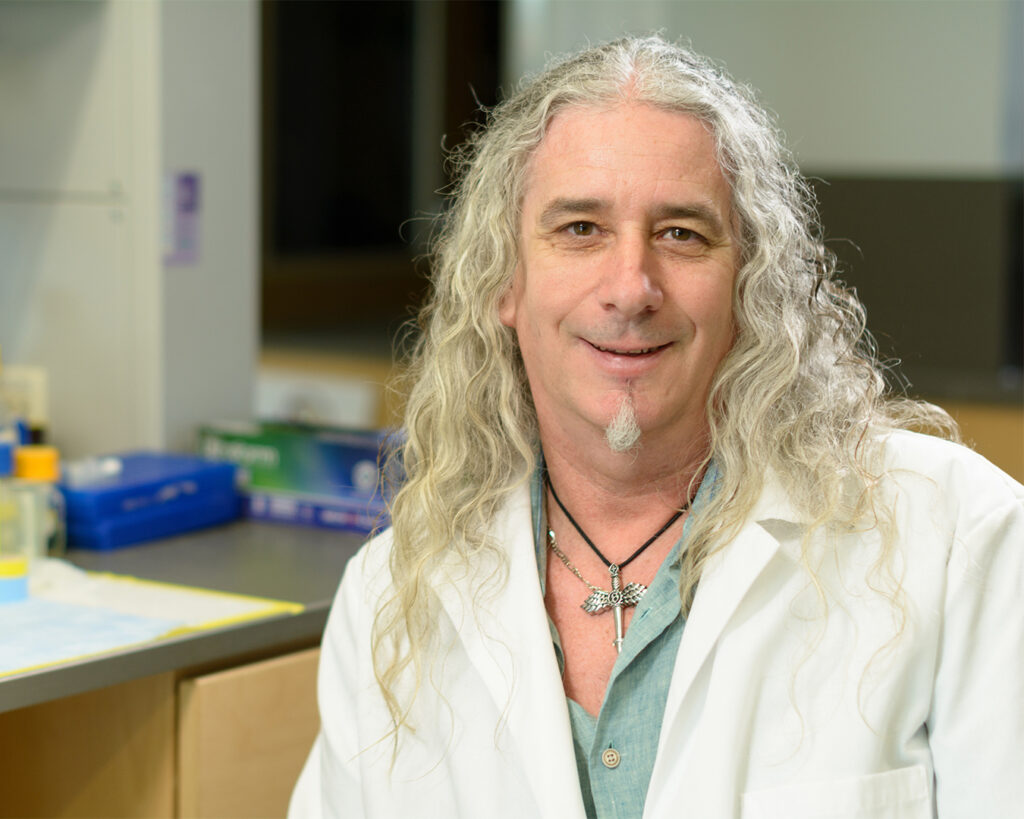
Christian Jobin
Distinguished Professor of Medicine Christian Jobin’s lab has been at the forefront of microbiota research in recent years and has contributed valuable knowledge on how bacteria influence the development of colitis and colitis-associated colorectal cancer. His lab discovered the cancer-promoting effect of colibactin, a metabolite produced by some gut E. coli, and revealed how inflammation impacts DNA damage induced by microbes that can lead to mutations and diseases like cancer. Jobin is also co-leader of the UF Health Cancer Center’s new Immuno-Oncology and Microbiome program.

